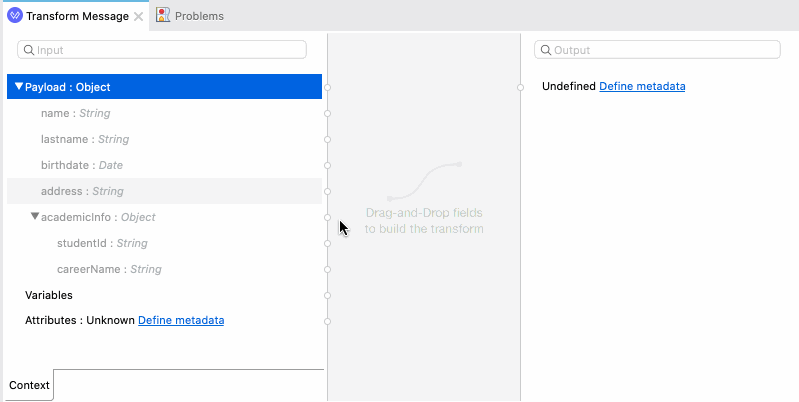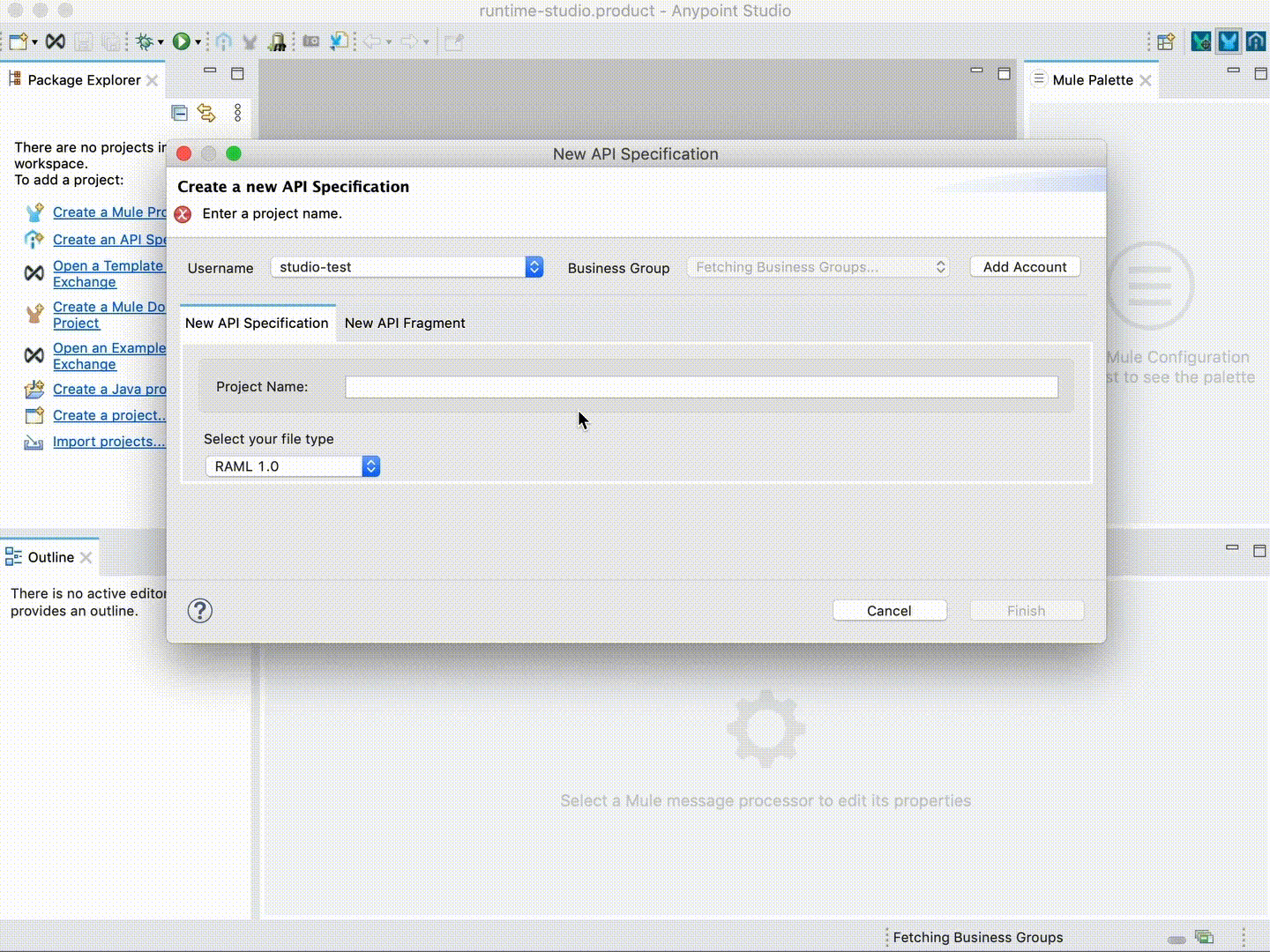I am happy to announce our new release of Anypoint Studio 7.7 is now available. Our goal with every new Anypoint Studio release is to further improve and streamline the API and integration development process for our MuleSoft devs. This means making it faster to build, with more powerful and more intuitive tooling. This release includes a new perspective for inspecting input and output payloads when using DataWeave, the ability to natively create API specifications in Studio, and MuleSoft Government Cloud support for our FedRAMP compliant users.
Faster transformations with DataWeave
We know developers love DataWeave for transforming all types of data. In a recent conversation with our MuleSoft Ambassadors about our 2020 Hackathon announcement, one of them asked if the hackathon would just be DataWeave, or all of Anypoint Platform. Spoiler: it’s on all of Anypoint Platform (learn more about our hackathon here), but it was another proof point for me that our developers really love DataWeave.
And with this release, we’ve made it even easier to write DataWeave scripts by more directly surfacing the contents of input and output payloads. Now, sample data can be seen directly on the input payload context, and the output payloads can be visualized as objects in a familiar tree structure

Create API specifications within Studio
A few months ago, we released Studio 7.6 which made it possible to edit API specifications within Studio. This allowed users to design their API in Design Center, import it into Studio, and make edits if they realized something was missing from their spec mid-development. This reduces friction when switching between tools. With this release, we now allow net -new creation of API specifications directly within Studio to further reduce friction for developers who prefer working exclusively in a desktop IDE environment.
Studio now comes with a new perspective specifically designed for API design. Users can now create new RAML or OAS specifications, mock and validate using the new perspective, and sync to Design Center or publish to Exchange. Now, developers can choose to design with API Designer in Anypoint Design Center or develop within Anypoint Studio based on their preference.

Accelerated API implementation for MuleSoft Government Cloud
For many of our public sector customers, MuleSoft Government Cloud offers a FedRAMP compliant environment for them to deploy Mule apps. Today, we’re very excited to announce MuleSoft Government Cloud support for Studio. This allows users to connect from Studio directly to their MuleSoft Government Cloud control plane for an improved API implementation experience.
MuleSoft Government Cloud users can import API specifications from Design Center into Studio, scaffold API implementations with APIkit, and publish Mule apps directly to MuleSoft Government Cloud. This removes many of the additional steps currently needed to package Mule apps for custom deployment processes into a MuleSoft Government Cloud environment, ultimately accelerating the time of delivery of integrations for our GovCloud users.
Getting started with Studio 7.7
To get started with this new release, download the new version of Studio today. Or, if you are new to MuleSoft, sign up for a free trial of Anypoint Platform to get started building integrations.









